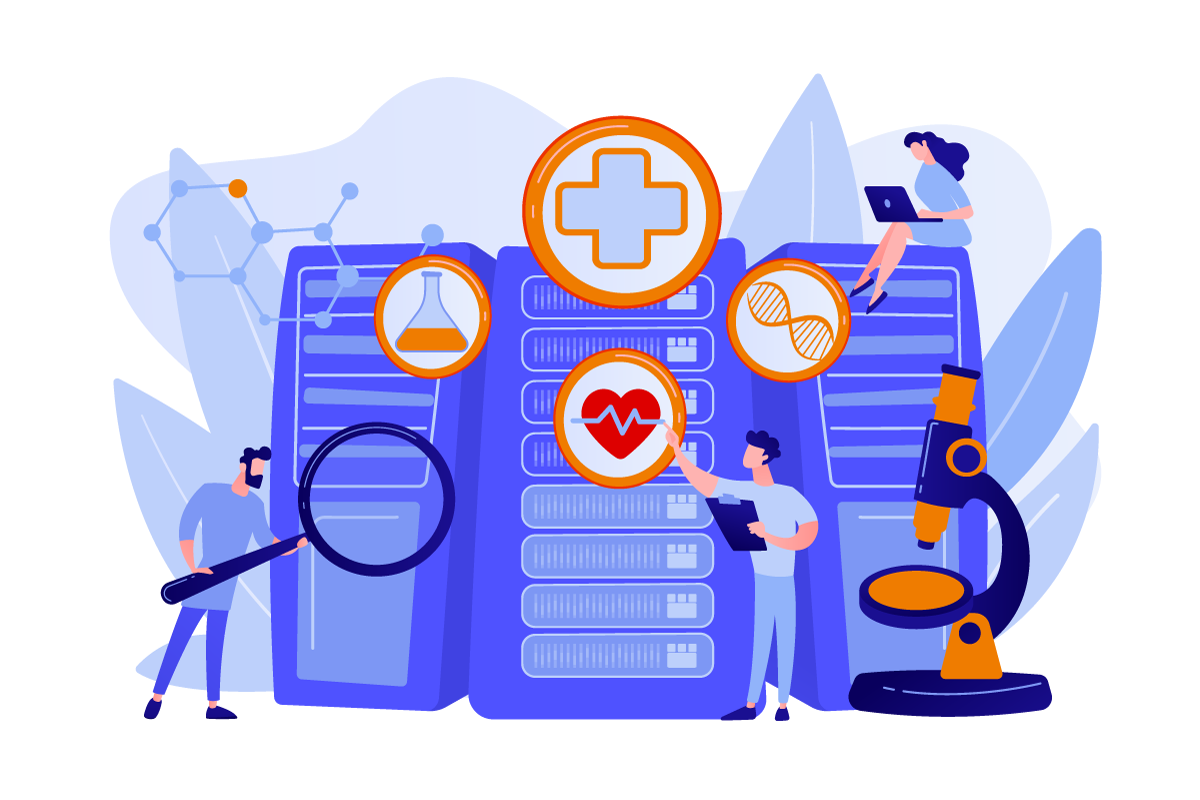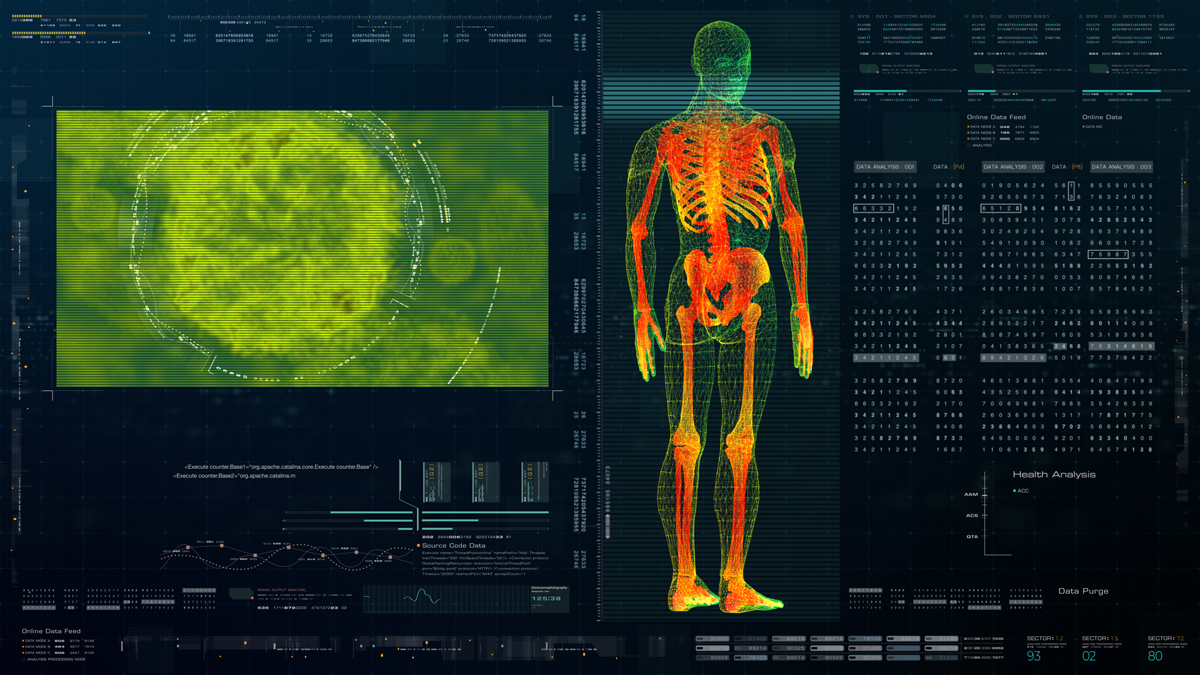Data and technology are fuelling some of the latest advances in the healthcare sector. Smartwatches today can monitor heartrate and blood pressure. New health scanning devices are collecting larger volumes of information with greater accuracy. All the data collected is then consolidated for more comprehensive patient histories in databases such as electronic health records. More and more, data and analytics are enabling us to learn what is needed for us to be healthier and live longer. With little doubt, the field of biomedical informatics is a growing one.

Associate Professor (Assoc Prof) Ngiam Kee Yuan, Programme Director of the National University of Singapore (NUS) Master of Science (MSc) in Biomedical Informatics, shares that the field has been evolving rapidly. Industry 4.0 technologies such as Machine Learning and Artificial Intelligence have been introduced into healthcare, allowing for new advances to emerge—electronic health records being one such example.
As a matter of fact, the global health products and health informatics market is projected to reach USD 386,820 million by 2028, from USD 218,500 million in 2021, according to research reported by GlobeNewswire.
Assoc Prof Ngiam is convinced that the field of biomedical informatics has much growth potential. The Covid-19 pandemic, for example, has made clear the importance of being able to use data analytics, machine learning and digitalisation in order to support healthcare. The field is set to grow further in the future, leading to increased demand for data analytics skills.
Introducing the Master of Science in Biomedical Informatics
Against this backdrop, NUS is launching its new postgraduate by coursework programme, the MSc in Biomedical Informatics.
Offered by the Yong Loo Lin School of Medicine (NUSMed), the MSc in Biomedical Informatics is designed to equip individuals with the skillset needed to navigate the continuous digitalisation of healthcare, along with an understanding of biomedical informatics topics such as medical data processing, human-centered design and usability testing. In this programme, students will be trained with the core skills of evidence-based clinical decision-making, machine learning, data visualisation, effective communication, strategic leadership and entrepreneurship.

Two specialisations are offered in the programme: Analytics and Hospital Management. These are the two key areas within biomedical informatics that are expected to drive demand for talent.
In the Analytics specialisation, students will be trained to reason, critically analyse, and subsequently evaluate the effectiveness of clinical decision support systems, as well as to lead and implement strategic clinical innovations or projects.
MSc in Biomedical Informatics graduates with a specialisation in Analytics can pursue a variety of positions in both the public and private sectors, including public health analyst, researcher, public health officer and clinical research coordinator.
The Hospital Management specialisation meanwhile is aimed at training students in various aspects of hospital work, such implementation of public health policies, evidence-based patient care and clinical decision support systems.
MSc in Biomedical Informatics graduates with a specialisation in Hospital Management can pursue careers in medical centres as well as clinics, contributing in such areas as healthcare operations, medical records, staff training and digital transformation, among others.
Assoc Prof Ngiam expects employment opportunities for graduates to grow over the next five to ten years. The increased adoption of electronic health record systems especially is expected to drive demand for data analytics professionals. As the healthcare industry moves toward digitalising medical records, information in the electronic health record system will become more accessible and abundant. The ease of access to these records will allow the data they hold to be studied, to arrive at new findings and innovations. As such, there will be a demand for professionals who will be able to analyse and derive conclusions from the data generated.
Job opportunities would also be available from non-healthcare-provider backgrounds. Scientific organisations looking for specialists in healthcare analytics and companies that handle healthcare administration and management will increasingly be looking for talent with data analytics and machine learning skills. This is in line with reports on the state of the workforce in Singapore.

SkillsFuture Singapore expects the transformation of the healthcare industry to be accompanied by increasing demand for more technologically savvy talents—not only software programmers and technical experts, but also professionals who are equipped with more generic, applied information technology (IT) skills.
A key advantage of the NUS MSc in Biomedical Informatics lies in the close ties that NUSMed has with the National University Healthcare System (NUHS). As an academic medical centre that integrates service, research and education, NUHS serves a large number (and range) of patients, attracts some of the top research-inclined clinicians in the world and collaborates with academics who are among the best in Asia. It also has vast computing resources and world-class facilities for clinical trials. All this translates into NUS MSc in Biomedical Informatics students having opportunities to gain practical experience in an established healthcare system, even as they pursue a world-class education.
The NUS MSc in Biomedical Informatics is accepting applications to join its inaugural cohort from 1 Apr 2022 to 31 May 2022 (international applicants) / 30 Jun 2022 (local applicants). To learn more about the programme, click here.
GlobeNewswire (2022, Jan 25). Health Products Market and Healthcare Informatics Market Outlook to 2027: Growing Opportunities and Challenges, Emerging Demands, Recent Trends, Explosive Factors of Revenue, Progression Status, Futuristic Growth, and Forecast